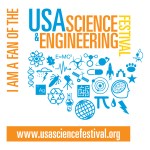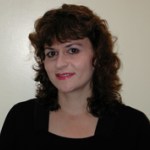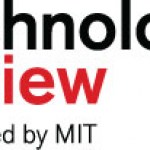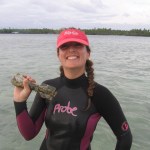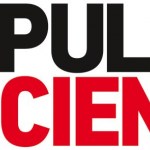Science
Last week, I gave a talk at UNLV titled "A counter-revolutionary history of evo devo", and I'm afraid I was a little bit heretical. I criticized my favorite discipline. I felt guilty the whole time, but I think it's a good idea to occasionally step back and think about where we're going and where we should be going. It's also part of some rethinking I've been doing lately about a more appropriate kind of research I could be doing at my institution, and what I want to be doing in the next ten years. And yes, I want to be doing evo devo, so even though I'm bringing up what I see as shortcomings…
This week's "Featured Fan" is Felicia Reed! Felicia is a Festival Volunteer, she runs a great community outreach organization and is a proud mother to a future STEM leader! We thank Felicia for her Festival contributions and ongoing support!
Read all about our "Featured Fan" Felicia Reed below:
I am a HUGE fan of the USA Science and Engineering Festival! I work full time as a Quality Management Specialist. In my spare time, I operate Kids Getting Out (KGO) a community-based organization that sponsors activities, promotes process learning and performs community services. KGO also holds…
**Update, the NYT has an editorial in their Sunday edition recommending the passage of two bills in congress requiring advanced notice from drug manufacturers in event of likely shortage.
Health affairs discusses the increasingly frequent shortages of critical, life-saving, generic drugs. This is a serious problem that seems mostly limited to the U.S. healthcare system, and may adversely affect you or someone you know.
Many of the same drugs are not in such short and unpredictable supply in Europe, where in some cases they carry higher prices. This provides one major clue to the root cause…
Regular reader Johan Larson sends in a good question about academic physics:
You have written about teaching various courses in modern physics, a subject that has a fearsome reputation among students for skull-busting difficulty. That suggests a broader question: what is the most difficult course at your university? Or even more broadly, how would one determine what course is the most difficult?
This is a good question, but hard to give a single answer to. The most difficult course at the college as a whole would be nearly impossible to determine, because different students find different…
This past December, AT&T sponsored Nifty Fifty program speaker Dr. Karen Panetta received a Presidential Award for Excellence in Science, Mathematics and Engineering Mentoring from President Barack Obama! Dr. Panetta is a Professor of Electrical and Computer Engineering at Tufts University and Director of the Simulation Research Laboratory at Tufts University. She is also the co-founder of BA Logix Inc. and serves as the company's Chief Research Scientist. Congratulations to Dr. Panetta and read about her prestigious award here.
Read about Dr. Karen Panetta's Engineering Outreach…
As I've said a bazillion times already this term, I'm teaching a class that is about research and writing, with a big final paper due at the end of the term. Because iterative feedback is key to learning to write, they also have to turn in a complete rough draft, which I will mark up and have them revise.
One of the many, many problems with teaching writing is that too many students regard the writing of drafts as pointless busy-work. Others have no real concept of what a rough draft is-- when I've collected drafts in the past, I often get things that would barely qualify as an outline, let…
So, the big How to Teach Physics to Your Dog Photoshop contest concluded on Friday. We got five really good entries, and the judges (me and Kate) had a hard time reaching a decision. After long deliberation, though, we've come up with a solution.
But first, the entries:
Jane Di Giuseppe has Emmy as the dog pulling Einstein's strings:
John Pearce has Emmy playing with Einstein as well:
And Joseph Roith tells Maxwell's Demon to respect Emmy's authoritah!:
But in the end, it came down to two pictures: Tristan Croll's take on the famous chalkboard photo:
It's a little-known fact that not…
Known as "the authority on the future of technology " and the world's oldest technology magazine,Technology Review - published by the Massachusetts Institute of Technology (MIT) - is bringing its prestige and expertise back to the Festival as a Media Partner!
Technology Review, published by MIT since 1899, continues today to provide unparalleled insights into cutting edge technologies that are changing the world and the way science and engineering do business.
In returning as a Media Partner, the magazine joins a growing list of other top science media leaders who are also serving as Festival…
The 2012 Festival will be here in April and we thought it would be special to honor some of the people that make the Festival happen: our fans. The Festival would not be possible without the help of our partners, sponsors and exhibitors; however our fans play a huge impact in the success of the Festival.
Leading up to the Festival, we have decided to implement a "Featured Fan" segment. Our first Featured Fan is Dr. Jessica Carilli. Jessica shares her insight into her passion: science and her excitement for the Festival below. Enjoy!
Dr. Jessica Carilli happy at work
I'm a big fan of…
By Larry Bock
Founder and organizer, USA Science & Engineering Festival
It's both funny and remarkable how some of the most simple and natural acts we do each day are teeming in science.
Take for example, the kiss.
A kiss, especially a passionate one, sets off a cascade of emotions and chemical reactions in our brain and body that would surprise most of us if we knew the whole story.
Well, just in time for Valentine's Day, Sheril Kirshenbaum, science writer and author of the recent book, The Science of Kissing: What Our Lips Are Telling Us, sheds light on exactly what goes on…
By Sean Connolly
Festival Featured Author
What a difference a digit makes! There I was preoccupied with making my own eggnog, checking page proofs, and It's a Wonderful Life on television. Then along comes January 1, and with it that odometer switch from "1" to "2" at the end. Suddenly 2012 is this year.
And this year means a trip to DC in late April for the USA Science and Engineering Festival. A festival appearance gets us authors out of our garrets, blinking as we meet the real people out there. And it's those real people--particularly the young ones--who make it all so much fun.
I can…
I have a Google alert set up to let me know whenever my name or the title of one of my books turns up in one of the sources they index. This is highly imperfect, sometimes missing interesting articles, and often blorting out 57 different pages on which my name appears in a sidebar link. It comes in handy from time to time, though, such as this morning, when it coughed up a whole bunch of pages linking to the Polish edition of How to Teach Physics to Your Dog:
Finally, dogs in the ancestral homeland of my father's family can learn all about quantum physics. I'm a little surprised to learn…
A quick reminder: How to Teach Relativity to Your Dog (cover in the left sidebar) will be released at the end of the month. If you'd like to win a signed copy early, though, you can enter our Photoshop contest. Just edit a picture of Emmy into another picture having something to do with physics. Like this:
(See the transcript here for the source of this comment.)
The deadline for entering is this Friday. We've already got some quality entries, but the more the merrier.
Proving that you can find physics in everything, Sean Carroll points to a strange anomaly in the Super Bowl coin toss: the NFC has won 14 coin tosses in a row. The odds of this happening seem to be vanishingly small, making this a 3.8-sigma effect, almost enough to claim the detection of a new particle, and certainly enough to justify the generation of a press release.
Of course, there are two problems with Sean's analysis, one classical and one quantum. The classical objection is that what we have a record of is one team winning the toss every time, which does not mean that the coin is doing…
It's been a little while since I wrote up what I've been doing in my "Brief History of Timekeeping" class, because I was out of town, and then catching up from being out of town. Some of this material has already appeared here, though, so I can hopefully catch up a lot of stuff in one post.
The material that will be most interesting to random readers of the blog is the "How to" section, from a couple of weeks ago, which were the lecture form of the How to Read a Scientific Paper and How to Present Scientific Data posts here. The paper-reading class was on Monday and the data-presentation…
Popular Science, one of the leading sources of news in technology, science, gadgets, space, green tech and more, is returning as a key Media Partner with the Festival!
In doing so, PopSci joins a growing list of other top science media leaders who will be serving as Festival sponsors, including Popular Mechanics, Scientific American, MIT's Technology Review, Chemical & Engineering News, School Tube.com, ENGINEERING.com, EE Times and PBS Kids.
PopSci has been a major source of science and technology news since its award-winning magazine Popular Science was founded back in 1872. Its online…
A couple of weeks ago, I made the observation that there seems to have been a--shall we say?--realignment in one of the central arguments that proponents of "complementary and alternative medicine" (CAM) and "integrative medicine" (IM) make. Back in the day (say, a few years ago), such CAM practitioners and apologists used to try very, very hard to argue that their modalities had actual efficacy, that they had actual, measurable effects that made them medicine rather than woo. Never mind that even back then they had been trying for at least a couple of decades to come up with preclinical and…
It's now officially February, and the release date for How to Teach Relativity to Your Dog is only a few weeks off-- the official release date is Feb. 28. Of course, I've got a copy already:
If you would like a copy of your very own, you can either wait until the release, or take part in this shameless publicity stunt: The second-ever Dog Physics Photo Contest!
Last time around, we did a LOLEmmy contest for a bound galley proof of the first book. This time, I'm giving away a signed copy of the finished book, so we'll go for something a little trickier: I've picked three pictures from my…
As I keep saying in various posts, I'm teaching a class on timekeeping this term, which has included discussion of really primitive timekeeping devices like sundials, as well as a discussion of the importance of timekeeping for navigation. To give students an idea of how this works, I arranged an experimental demonstration, coordinated with Rhett at Dot Physics. We've been trying to do this literally for months, but the weather wouldn't cooperate. Until this past weekend, when we finally managed to make measurements that allow us to do some cutting-edge science. For 200 BC, anyway...
So, what…
I'm using Dava Sobel's Longitude this week in my timekeeping class. The villain of the piece, as it were, is the Reverend Dr. Nevil Maskelyne, who promoted an astronomical method for finding longitude, and played a major role in delaying the payment to John Harrison for his marine chronometers. It's a good story, with lots of science and engineering and politicking.
There's one critical flaw, though, in terms of me teaching this book, which is that I don't really know how to say Maskelyne's name. And even Wikipedia is letting me down, here, by not providing a phonetic rendering of his name.…
